MCQ ON KINGDOM MONERA class 11 for NEET | KINGDOM MONERA with Answer | Check the below NCERT MCQ question for class 11Biology based on the with Answers.
MCQ on KINGDOM MONERA class 11Biology with answers were prepared based on the latest pattern. We have provided class 11 Biology MCQs question with Answers to help students understand the concept very well.
MCQ ON KINGDOM MONERA is useful for NEET / CSIR / UGC / CBSE / ICSE / AIIMS / EXAM / AFMC EXAM / STATE LEVEL MEDICAL EXAM/ KVS PGT BIOLOGY / NVS PGT BIOLOGY EXAM 2023-2024 ,2025
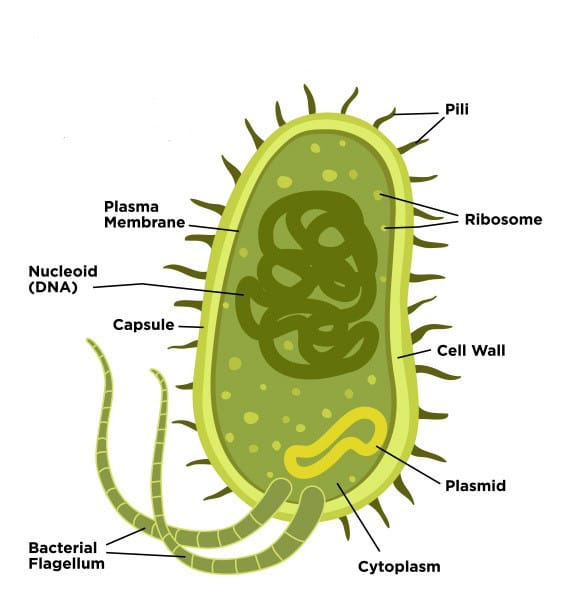
MCQ ON KINGDOM MONERA class 11 for NEET
INTRODUCTION:-
KINGDOM MONERA:-
The Kingdom Monera includes most ancient the smallest the simplest and the most plentiful prokaryotes. Therefore the kingdom is also known as prokaryotes. The term prokaryotes means before nucleus.
That means these organisms like a true nucleus and some basic protein are absent in the nucleoplasm.
Bacteria minute , unicellular , microscopic ,
Simple undefferentiated prokaryotic organisms.
Bacteria are ubiquitous. They occur anywhere and everywhere in water in air in soil in all living organisms except the pits of volcanoes , deep strata of rocks , top of high mountain and blood of healthy animals.
The bacteria possess the following forms :
Coccus , bacillus, spirillum , vibrio , filament , stalked , budded.
MCQ KINGDOM MONERA class 11 for NEET/KVS PGT BIOLOGY / NVS PGT BIOLOGY EXAM 2023-2024,2025
1. Bacteria were discovered by
(a) Antony Van Leewenhoek
(b) Robert brown
(c) Robert hook
(d) Palade
Ans (a) Antony Van Leewenhoek
2. Cell theory is not applicable for
(a) bacteria
(b) viruses
(c) fungus
(d) algae
Ans. (b) viruses
3.Nuclear membrane is absent in
(a) Monera
(b) protista
(c) fungi
(d) plantae
Ans. (a) Monera
4. Which of the following are found in extreme saline condition?
(a) Eubacteria
(b) Cyanobacteria
(c) Mycobacterium
(d) Archaebacteria
Ans.(d) Archaebacteria
5. Methagones belong to
(a) Eubacteria
(b) Archaebacteria
(c) Dinoflagellates
(d) Slime mould
Ans.(b) Archaebacteria
6. The structure that help some bacteria to attach to rocks and or host tissues are
(a) holdfast
(b) rhizoids
(c) fimbriae
(d) mesosomes
Ans.(c) fimbriae
7. The motile bacteria are able to move by
(a) fimbriae
(b) flagella
(c) cilia
(d) pili
Ans.(b) flagella
8.Five kingdom system of classification suggested by R.H.Whittaker is not based on
(a) presence or absence of well defined nucleus
(b) mode of reproduction
(c) mode of nutrition
(d) complexity of body organisation.
Ans.(a) presence or absence of well defined nucleus.
9. Which of the following are likely to be present in deep sea water?
(a) Eubacteria
(b) Blue – green algae
(c) Saprophytic fungi
(d) Archaebacteria
Ans. (d) Archaebact
10. Nuclear membrane is absent in
(a) penicillium
(b) agaricus
(c) volvox
(d) nostoc
Ans. (d) nostoc
11.The cyanobacteria are also referred to as
(a) protista
(b) golden algae
(c) slime mould
(d) blue green and
Ans.(d) blue green algae
12.The cell wall of bacterium is made up of
a) cellulose
b) hemicellulose
c) lignin
(d) peptodoglycan
Ans . (d) peptodoglycan
13. Which of the following is prokaryotic ?
(a) Amoeba
(b) Spirogoya
(c) Bacteria
(d) Chlamydomonas
Ans. (c) bacteria
14. In many bacteria specially gram positive the plasma membrane gives rise to in folding called
(a) mesosomes
(b) sclereids
(c) Collenchyma
(d) parenchyma
Ans. (a) mesosomes
ALSO READ:-
● YOU CAN WATCH BIOLOGY SIR Youtube channel
15. The true nucleus with nuclear membrane is absent in
(a) eukaryotic cells
(b) angiosperms
(c) gymnosperm
(d) bacteria cell
Ans.(d) bacteria cell
16. Flagella are attached all over the body.
(a) amphitrichous
(b) cephalotrichous
(c) peritrichous
(d) atrichous
Ans.(c) peritrichous

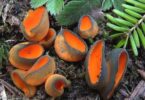

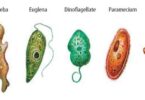
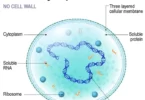
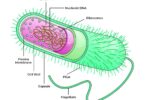
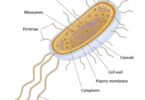
Leave a Comment